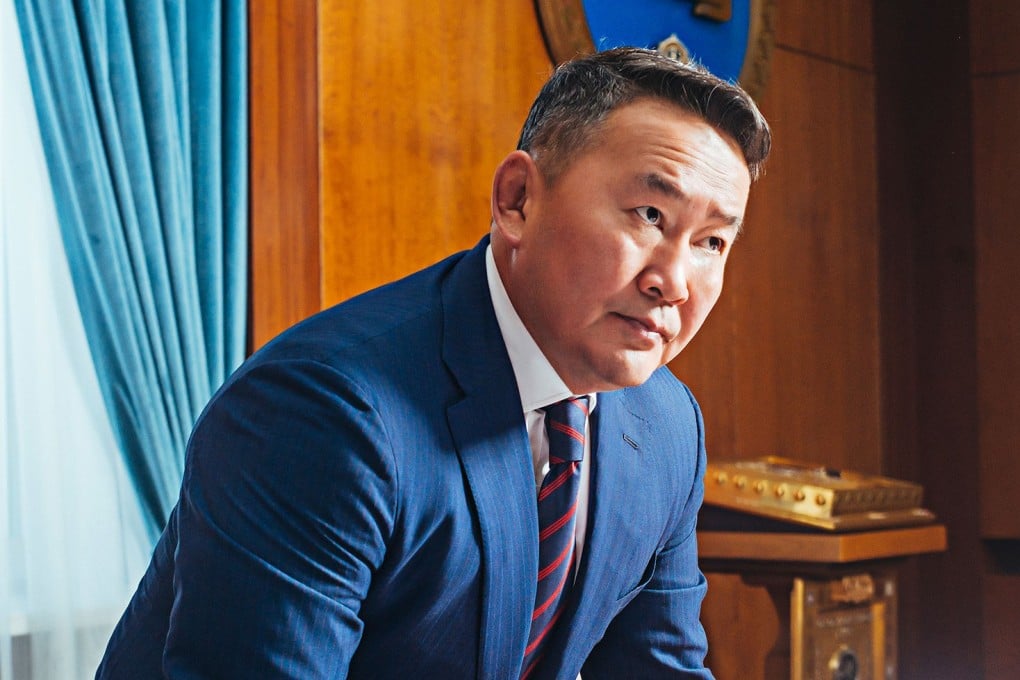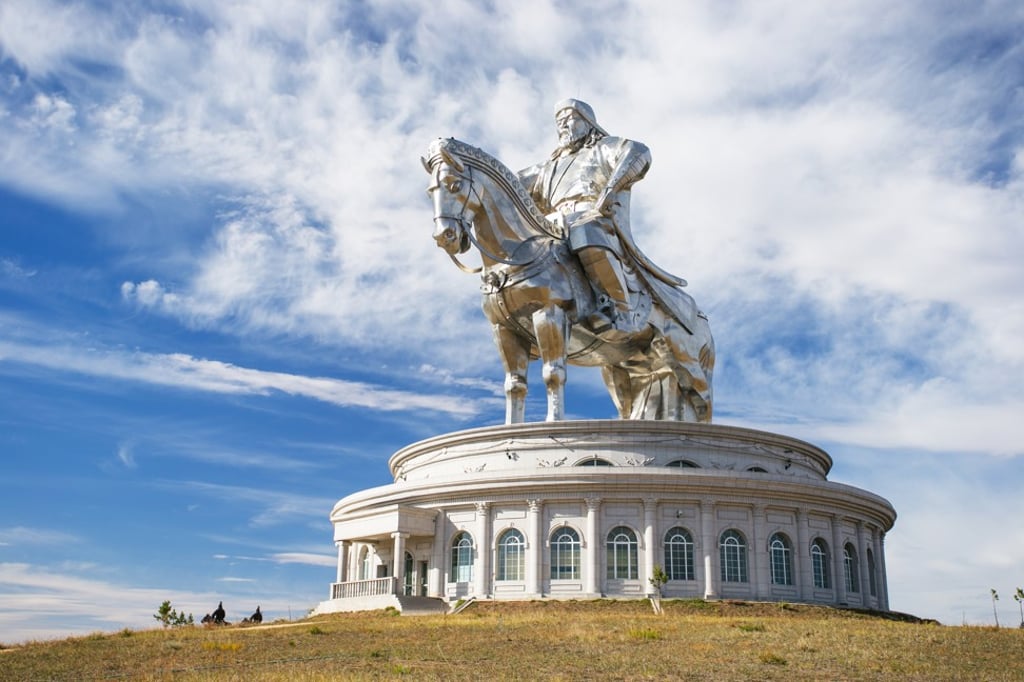Mongolia’s Khaltmaa Battulga, the other populist president with a business background and ties to Putin
He named his company after a mafia outfit from The Godfather before entering politics, ascending to the highest office and passing controversial legislation that allowed him to fire judges and opposition voices along the way

A champion martial artist in his youth, Battulga is squat and powerful, with a thickly muscled neck and ears slightly squashed from years of grappling. He wore a dark fedora, leather riding boots and a wine-coloured deel – a fancy version of a traditional herder’s robe – cinched at the waist with a broad sash. As he awaited his turn to speak, two teams of riders in red-and-blue uniforms performed an impressive display of coordinated dismounts. After remounting their steeds in one swift movement, they tore away for a lap around the stadium, a rushing eddy of pointed helmets and bouncing tails.
Battulga stepped to the mic. “Genghis Khan, the great lord and our beloved forefather,” he said, “your horses are agile, the strapping wrestlers are adept, and the archers are well-aimed.” Naadam, he proclaimed, “is an occasion that makes each and every one of us understand the essence of being a true Mongol.”
The great Khan, Mongolia’s official national hero and a man Battulga so reveres that he constructed a 40-metre-tall statue of him, was the most feared leader of his era. His forces killed millions, many in mass beheadings, as they tore across the continent. Hardly a model democrat, in other words.

Yet for most of the past three decades the country that glorifies him has been considered a star pupil of the West. European and United States leaders praise Mongolia as an oasis of liberty and capitalism, blessed with abundant mineral reserves, a young, worldly population, and a fervent desire to chart a path apart from its powerful neighbours, Russia and China.
This perception has elevated Mongolia in the minds of foreign investors, notably Rio Tinto, which is counting on the giant Oyu Tolgoi copper and gold project in the far reaches of the Gobi Desert, one of the world’s most ambitious mining developments, for much of its future growth.